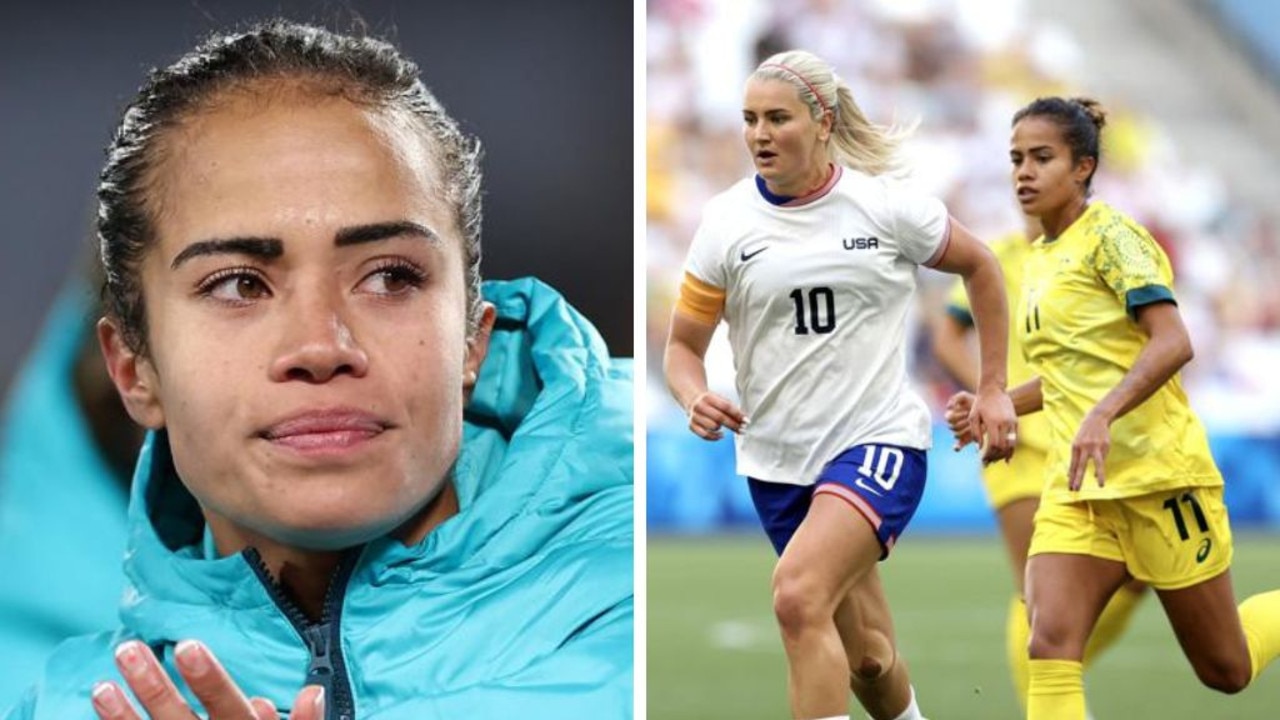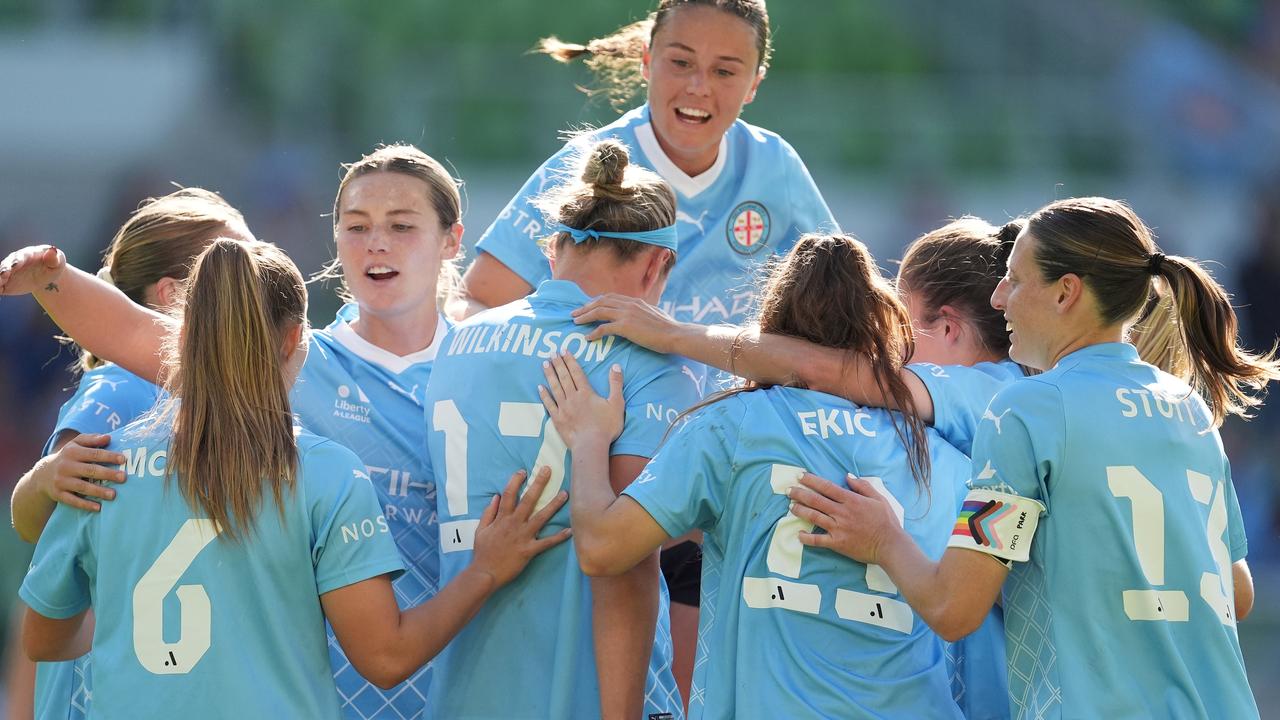Asian Cup 2015: China spending millions on football development
MILLIONS of dollars are being spent at multiple levels to ensure China’s Asian Cup quarter-final with Australia is no flash in the pan.
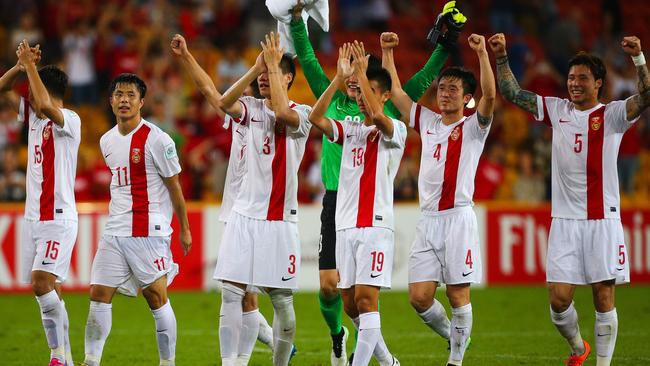
Asian Cup
Don't miss out on the headlines from Asian Cup. Followed categories will be added to My News.
THE Wanderers got the first taste of it in the Asian Champions League, when a visit from Guangzhou Evergrande in the Asian Champions League brought the unlikely sight of Marcello Lippi — World Cup-winning coach — to Parramatta Stadium, along with two Italian internationals.
Tomi Juric could have experienced it first hand, if he had decided to accept an offer from Shanghai Shenhua to join the Chinese Super League, and earn somewhere between $10m and $18m.
These are the glitziest manifestations of China’s determination to become a footballing powerhouse, but millions of dollars are being spent at multiple levels to ensure China’s Asian Cup quarterfinal with Australia on Thursday is no flash in the pan. When a government legislates to force schools to include football on the national curriculum, it suggests they are serious.
HILL: WHY CUP’S BEEN A RAGING SUCCESS
UP FOR THE CUP: ROOS RIVALS ARE READY
ORGANISED CHINA FINISH DPR KOREA
CHINA COACH PERRIN JOINS PITCH CRITICS
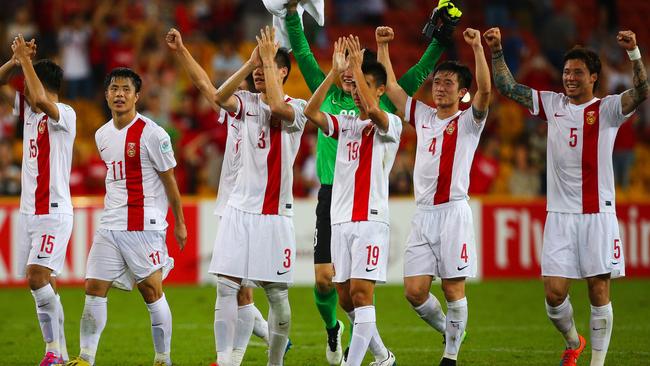
The performance of the Chinese national team has been something of an embarrassment for years, completely at odds with the success of their swimmers, athletes and gymnasts — and incongruous in a country that loves the game.
Yet societal pressures like the one-child policy, and the stench of corruption, have taken a hefty toll on the sport.
Having gone out in the first round of the last two Asian Cups, for the French coach Alain Perrin to lead China to three straight wins has caused extraordinary excitement back home.
“I always thought it would only take a decent coach to bring it all together for that squad,” said Joel Griffiths, the Newcastle striker who became a cult hero in a three-year spell in China from 2010.
“When you have a lot of pace, and a good blend of pace and experience, the key was always getting them organised, because a lot of those boys can really play.”
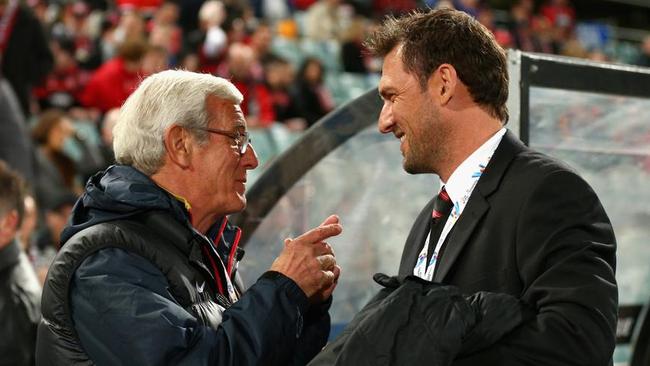
Back in China, though, there are plenty of eyes on the future. Guangzhou, bankrolled by the obscene wealth of billionaire Xu Jiayin, makes headlines from employing the likes of Lippi — but millions more are being spent on the club’s huge academy, which is full-time home to hundreds of young players.
The chosen ones learn football but also a full education — hugely important in a society that values studiousness as much as anything.
Sometimes it doesn’t work, such as when the businessman Zhu Jun bought Nicolas Anelka and Didier Drogba to join Griffiths at Shanghai Shenhua, only to pull his money out in a dispute over ownership. But others are in it for the long term.
GOAL CENTRE: Watch every Asian cup goal & vote for your favourite
“I hear stories of what clubs like Beijing Guoan and Guangzhou are doing in relation to building for the future, and the money they’re spending on developing players,” said Griffiths.
“Certainly the owner of Guangzhou understands the players’ needs, and wants everything to be perfect.”
The Chinese president, Xi Jinping, has demanded his country qualify for, then host, then win, the World Cup. The state apparatus has swung behind the idea — bringing in overseas experts like the American, Tom Byer, credited with a huge role in Japan’s youth development system.
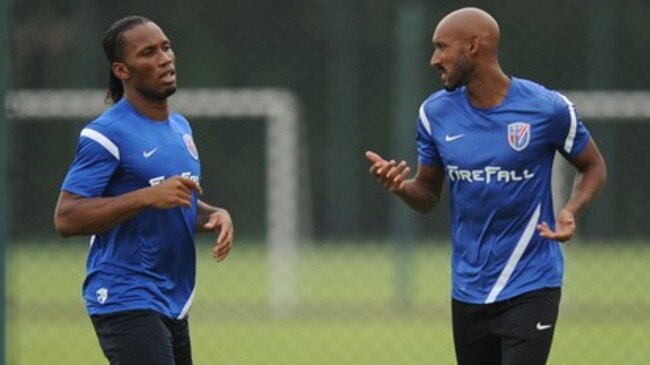
“How is it that China can send a rocket to the moon, but lose to Singapore in a World Cup qualifier?” Byer said recently.
Whether the latest efforts can bear fruit won’t be known for years, but the intention is there. “Leading into the Olympics in 2012 there was a lot of pressure on the Chinese football system to succeed,” Griffiths said.
“Now with the economy so strong, big business is investing money in players and facilities.
“The only thing for me is that all these young players (China’s Asian Cup squad is entirely home based) need to go overseas to learn football in a different culture and become men. That will make a huge difference to the team in the long run.”
Originally published as Asian Cup 2015: China spending millions on football development

